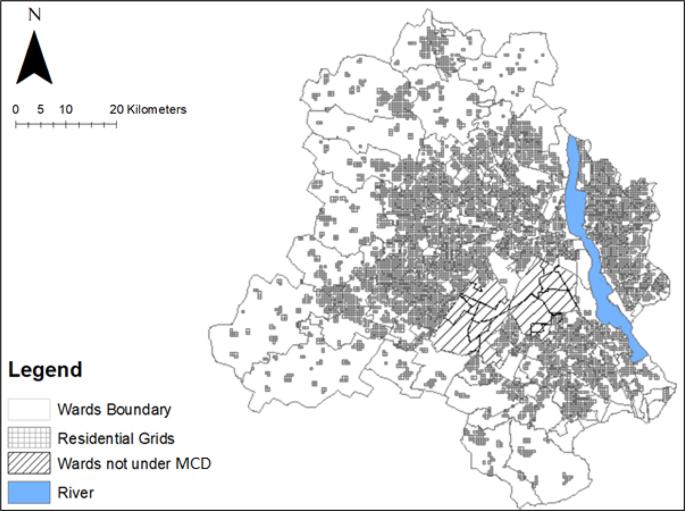Exploring residential built-up form typologies in Delhi: a grid-based clustering approach towards sustainable urbanisation
IF 8.8
Q1 ENVIRONMENTAL STUDIES
引用次数: 0
Abstract
Previous studies have established a significant link between urban form and sustainability. However, the diversity of micro-scale urban forms in cities in the global south has received limited attention, hindered by the lack of neighbourhood-level spatial data and maps, which poses challenges in exploring micro-urban form features. The study addresses this gap using a grid-based k-means clustering algorithm to identify residential built-up form typologies in Delhi and assess their impact on sustainable urbanisation. The algorithm clusters 100×100 metre grid cells based on their attributes of accessibility, built-up density, and street design. The results show six distinct built-up form typologies in Delhi. However, only 19% of residential areas meet the criteria for sustainable urbanisation, highlighting the need for planning interventions in most areas. The study methodology can be applied to analyse micro-scale urban form features in other cities in the global south, providing a fresh perspective on urbanisation research.

探索德里的住宅建筑形式类型:基于网格的集群方法实现可持续城市化
以往的研究已经确定了城市形态与可持续性之间的重要联系。然而,全球南部城市微观尺度城市形态的多样性受到的关注有限,原因是缺乏街区级空间数据和地图,这给探索微观城市形态特征带来了挑战。本研究利用基于网格的 k-means 聚类算法来识别德里的住宅建筑形式类型,并评估其对可持续城市化的影响,从而弥补了这一不足。该算法根据 100×100 米网格单元的可达性、建筑密度和街道设计等属性对其进行聚类。结果显示,德里有六种不同的建筑形态类型。然而,只有 19% 的住宅区符合可持续城市化的标准,这表明大多数地区需要进行规划干预。该研究方法可用于分析全球南部其他城市的微观尺度城市形态特征,为城市化研究提供了一个全新的视角。
本文章由计算机程序翻译,如有差异,请以英文原文为准。
求助全文
约1分钟内获得全文
求助全文

 求助内容:
求助内容: 应助结果提醒方式:
应助结果提醒方式:


